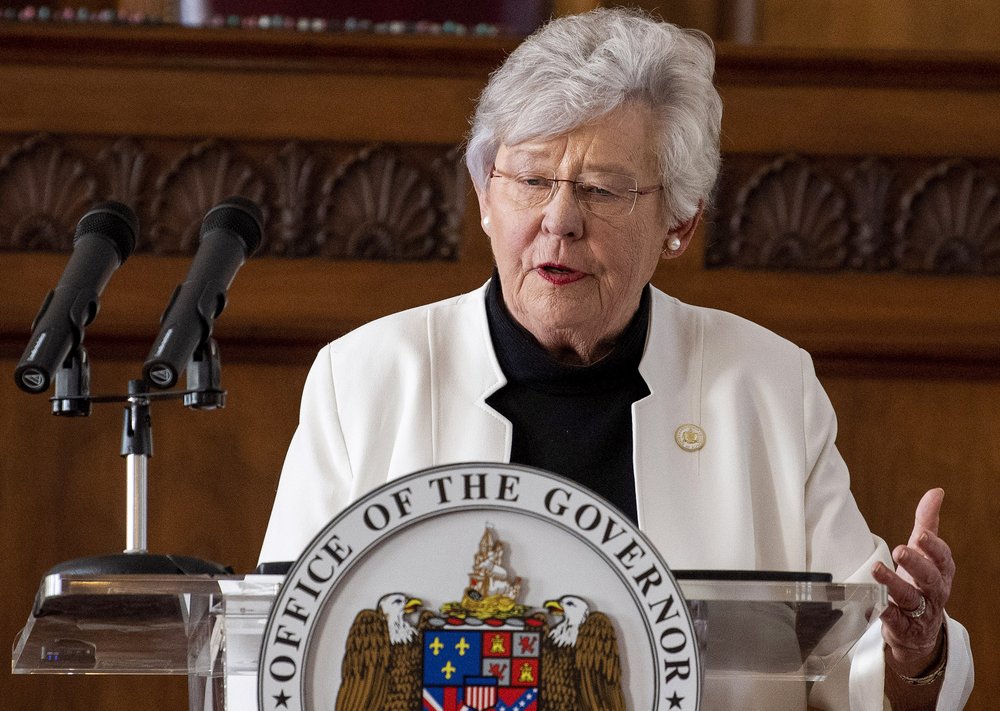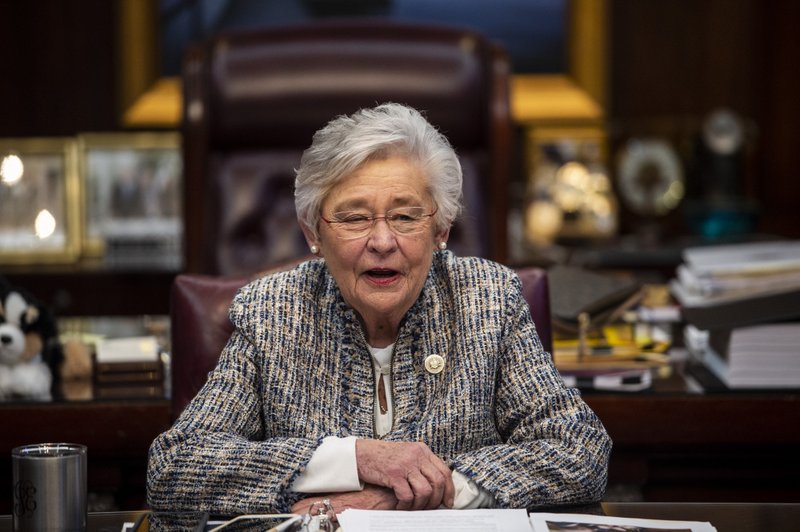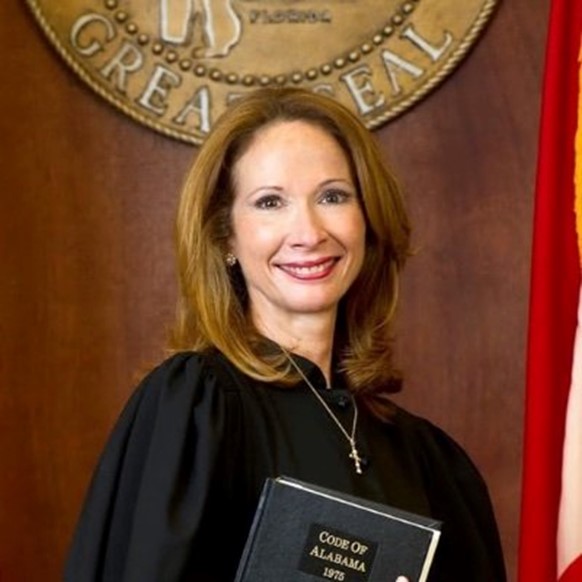House committee advances lottery, casino bill

Lottery and casino legislation will be decided in the last two days of the legislative session after being advanced Tuesday by the House Economic Development and Tourism Committee. The committee voted to send the bill to the floor of the House of Representatives. The decision came after a public hearing in which opponents said the bill picks “winners and losers” by naming the nine casino locations. And proponents said it was time to give Alabama voters the opportunity to vote on gambling for the first time in two decades. If approved by lawmakers, the measure would go before voters in November 2022. The bill would establish a state lottery. Casinos would be located at Victory Land dog track in Macon county, Greentrack dog track in Greene County, Mobile County Race Course in Mobile County, and the Crossing at Big Creek in Houston County. The Poarch Band of Creek Indians would also have casinos at its three locations plus the final bid for a new north Alabama site in either Jackson or DeKalb counties. “So, 1999 was the last time the citizens of Alabama had an opportunity to vote on a comprehensive gaming plan or any type of gambling in the state. Since then, almost 200 pieces of legislation pertaining to gambling, gaming lottery have been introduced in some form,” Republican Rep. Chris Blackshear of Phenix City said. Opponents said the legislation has the government picking “winners and losers.” “It literally takes the name of a business and imbeds it in our Constitution. When have you ever seen that happen?” said Phil Williams, a former state senator who now heads the conservative Alabama Policy Institute. Some opponents argued it was unfair to exclude existing electronic bingo locations in Greene and Lowndes county operating under current constitutional amendments. The state has been a long-running legal battle over the legality of the slot machine lookalikes. Rep. Kelvin Lawrence, R-Hayneville, said the proposal as written would close an existing electronic bingo hall in Lowndes County, one of the poorest counties in the state while allowing a new casino location in north Alabama. “You are not only pouring salt in the wound, you are digging the hole, putting us in it, and burying us. That’s not fair,” Lawrence said. The proposal would name the sites for the casinos, but the casino license would be put up for bid. Some lawmakers asked what would happen if the site owner does not win the license. Blackshear said he thought if another entity won the license, it would be “very difficult to walk away from a sale, a partnership or a lease agreement.” “That’s so gangster, though?” Rep. Rolanda Hollis, D-Birmingham said. The Alabama Senate last month voted 23-9. However, the measure is facing a tough vote and a ticking legislative clock in the House of Representatives. Lawmakers have two meeting days remaining. Lawmakers plan to meet Thursday and then conclude the session May 17. The debate on the substantial piece of legislation comes at a time when the public is being largely excluded from the Alabama Statehouse because of the COVID-19 pandemic. While the public hearing was broadcast on the Legislature’s website, people have largely been unable to attend legislative proceedings. Republican Rep. Reed Ingram of Pike Road urged lawmakers to take a pause instead of trying to push out the bill in the last two days of session. He said lawmakers could resume debate during a special session for redistricting later this year. Democratic Rep. Berry Forte of Eufaula said the state has waited long enough. He said when he drives to Georgia from his east Alabama district, all he sees are Alabama cars with people buying lottery tickets. “I think we should vote on it and let the folks decide if we need it or not,” Forte said. Republished with the permission of the Associated Press.
Kay Ivey awards COVID-19 recovery grants to four Alabama cities

Governor Kay Ivey today awarded a total of $4.5 million to help four of Alabama’s most populous cities recover from the COVID-19 pandemic. $1.5 million each will go to the cities of Birmingham and Mobile and $750,000 each to the cities of Tuscaloosa and Decatur. On Twitter, Ivey commented, “I’m pleased to award $4.5 million to help four of Alabama’s most populous cities – Birmingham, Mobile, Tuscaloosa & Decatur – recover from the #COVID19 pandemic.” I’m pleased to award $4.5 million to help four of Alabama’s most populous cities – Birmingham, Mobile, Tuscaloosa & Decatur – recover from the #COVID19 pandemic. #alpolitics @ADECA https://t.co/KyJpI6OtiR — Governor Kay Ivey (@GovernorKayIvey) May 4, 2021 The money is from $40 million given to Alabama under the Coronavirus Aid, Relief and Economic Security (CARES) Act and was made available to the state by the U.S. Department of Housing and Urban Development. The funds can be used to support COVID-19 related issues like testing and vaccinations, rental, mortgage, and utility assistance, or assistance to food banks and pantries. The funding can also help with job creation, business assistance, and related projects to provide pandemic relief. “As Alabama continues to make progress to end this pandemic, these funds will help people in some of Alabama’s largest cities to rebound from COVID-19,” Governor Ivey stated in a press release. “I am pleased to award these funds and hope they will help these cities as they continue their recoveries.” Birmingham will use funds to supply food and health services to residents, aid the homeless, and improve virtual schooling for students. Mobile plans to use the funds to fortify food banks to help meet local needs, upgrade emergency equipment, improve health services for senior citizens, and provide legal services to residents to address fair-housing needs. The city of Tuscaloosa will rehabilitate an underutilized elementary school building and convert it into a community resource center. The city of Decatur will provide rental and utility assistance, assist small businesses with loans and improve fire and rescue equipment. Alabama Department of Economic and Community Affairs (ADECA) Director Kenneth Boswell commented, “These Alabama cities qualifying for this special CDBG Covid-19 relief assistance know their needs and have presented their plans for helping them get past this pandemic and to prepare for any major disruptions in the future. ADECA joins Governor Ivey in looking forward to working with these partnerships.”
GOP seeks to convince vaccine skeptics within its own ranks

When a group of Republican doctors in Congress released a video selling the safety of the coronavirus vaccine, their message wasn’t explicitly aimed at their conservative constituents but nonetheless had a clear political bent. Getting the shot is the best way to “end the government’s restrictions on our freedoms,” Rep. Larry Bucshon, an Indiana Republican and heart surgeon who donned a white lab coat and stethoscope when he spoke into the camera. The public service announcement was the latest effort from GOP leaders to shrink the vaccination gap between their party and Democrats. With vaccination rates lagging in red states, Republican leaders have stepped up efforts to persuade their supporters to get the shot, at times combating misinformation spread by some of their own. “Medicine and science and illness, that should not be political,” said Dr. Brad Wenstrup, a Republican congressman from Ohio and a podiatrist who has personally administered coronavirus vaccine shots both as an Army Reserve officer and as an ordinary doctor. “But it was an election year and it really was.” Wenstrup said both parties helped foment some skepticism, though increasingly vocal moves by other Republicans amount to acknowledgment that GOP vaccine hesitancy is a growing public health problem — and potentially a political one. “Things could easily spiral quickly if we don’t solve this red-state-blue-state issue,” said Kavita Patel, a physician, and health policy expert who worked in the Obama administration. Patel said life could return to normal in certain parts of the country while the pandemic continues to rage elsewhere — potentially even disrupting in-person voting in primaries ahead of next year’s midterm elections. “We could be sitting here in the winter-fall with an entirely different, scary version of the pandemic,” she said. “One driven by a combination of variants and people who didn’t want to get vaccinated.” It’s easy to spot potential trouble spots now — and the political pattern. Mississippi has the nation’s lowest vaccination rate, with less than 31% of its population receiving at least one anti-coronavirus shot. And the four states that proceed it in national rankings, Alabama, Louisiana, Idaho, and Wyoming, according to an Associated Press analysis of Centers for Disease Control and Prevention data. They all vote reliably Republican in presidential races. By contrast, the five states with the highest vaccination rates backed Democrat Joe Biden in November. New Hampshire leads the nation with 60% of its population receiving at least one dose, followed by Massachusetts, Vermont, and Connecticut. The fifth highest vaccination rate state, Maine, awarded three of its electoral votes to Joe Biden and one to former President Donald Trump. Republicans are more likely than Democrats to say they definitely or probably won’t get vaccinated, 44% versus 17%, according to a poll released in February from The Associated Press-NORC Center for Public Affairs. Hence this week’s video, where Texas Republican Rep. Michael Burgess, an obstetrician who reassured viewers that rather than rush the vaccine out in an unsafe fashion, federal officials “cut bureaucratic red tape, not corners. And they got the job done in record time.” The video also credited the Trump administration’s Operation Warp Speed with bringing the vaccine so quickly. Amid polling showing that Republican men were among the most likely vaccine holdouts, Senate Minority Leader Mitch McConnell said earlier this month, “I can say as a Republican man, as soon as it was my turn, I took the vaccine.” Even Trump, who was vaccinated privately while in office, suggested on Fox News Channel that he’d be willing to record a video urging vaccination. Doing so would be an about-face for Trump, who as president long said he’d be willing to take a vaccine but also relished politicizing the pandemic. He suggested that lockdowns recommended by his administration’s experts were governmental overreach, mocked then-candidate Biden for wearing a mask in public too frequently, and used racist terms like “China virus.” Not all Republican lawmakers feel the same sense of urgency to raise the vaccination rate, meanwhile. “The science tells us that vaccines are 95% effective. So if you have a vaccine, quite honestly, what do you care if your neighbor has one or not?” Wisconsin Republican Sen. Ron Johnson said during a recent interview with a conservative radio host. “I mean, what is it to you?” Between 70% and 85% of the population would need to be immune before the coronavirus is effectively contained, experts believe. The GOP’s top leaders may also have political incentives to appeal to those resistant to getting the shot. Joe Brettell, a GOP strategist in deep red Texas, said he expects Republican governors looking to raise their profiles will seize on vaccine-related debates, such as opposing “vaccine passports” that may eventually be required for travel, even as they implore their state’s people to get immunized. “I think that’s where smart governors are going to start asserting themselves,” he said, noting that some already have. Ideology also isn’t the only factor in vaccine hesitancy. Experts are also tracking a generational gap, with younger Americans believing that, even if they get the virus, it is unlikely to seriously sicken or kill them. Republican West Virginia Gov. Jim Justice even is offering $100 saving bonds to residents ages 16 to 35 who get or have gotten the shot — trying to reverse a trend that saw his conservative state become an early leader in vaccination rates only to have it slow since. Republican pollster Frank Luntz, who has been researching how best to convince vaccine skeptics, says he believes the effort is most effective when it avoids politics, with people hearing about the benefits of immunization from doctors, not politicians. He said many skeptics are persuaded to get the shot because it benefits their friends and family, not just themselves. “If it’s politicized, they will not reach herd immunity,” said Luntz, who said that means giving credit to both sides, praising the Trump administration for Operation Warp Speed and the Biden White House’s efficient and effective distribution of vaccines. Luntz argued that public health officials should be targeting
Kay Ivey says pandemic is ‘managed,’ orders to end

Declaring the COVID-19 pandemic “absolutely” managed despite lagging vaccinations, Alabama Gov. Kay Ivey said Monday she will end a state health order meant to guard against the spread of an illness that has killed nearly 11,000 people statewide. Citing improved infection rates, fewer hospitalizations, and more widespread immunizations, Ivey said the current health order recommending that people follow health recommendations and requiring some precautions for senior citizens and long-term care facilities will end on May 31, barring a sharp rise in cases. A state of emergency declared because of the health threat will end July 6, she said in a statement. “For over a year now, Alabamians, like people around the globe, have made sacrifices and adjusted to a temporary ‘new normal.’ We have learned much since last year, and this is absolutely now a managed pandemic. Our infection rates and hospitalizations are in better shape, and over 1.5 million Alabamians have had at least one shot of the COVID-19 vaccine,” Ivey said. Deaths have declined sharply across the United States in recent weeks, and Alabama has followed the trend. Hospitalizations across the state are roughly 10% of what they were in mid-January when the situation was at its most dire. While the state’s infection rate has inched up to 5.5% in the last two weeks, that’s far better than the rate of 22.1% in early January. Alabama ranks No. 49 nationally in its vaccination rate, better only than neighboring Mississippi, and health officials say demand is declining in places. With vaccination rates lagging particularly in areas dominated by conservative white people, health officials have said it is unclear how many more people might be willing to get a shot. Dr. Ellen Eaton, an infectious disease specialist at the University of Alabama at Birmingham, said physicians are seeing more and more COVID-19 who are young and not vaccinated. With only 22% of the state’s residents fully vaccinated, leaders should aim for more widespread protection before any return to business as usual, she said. “If we can’t reach this goal, we will continue to see clusters and outbreaks in unvaccinated workers, we will continue to see essential workers and students out sick/in quarantine, and we will continue to see kids missing out on learning in the classroom. And these are all avoidable through widespread vaccination,” Eaton said in an email. Ivey, a Republican, called the immunization “safe and effective” and urged people to get it. “Look, I have been vaccinated. I believe in the science, believe that it works, and have confidence in it. So, like I said, I have been fully vaccinated, and I will live like I have been fully vaccinated,” she said. Alabama’s death count of 10,913 is the 16th highest in the country overall and the ninth-highest per capita, according to researchers at Johns Hopkins University. Over the past two weeks, the rolling average number of daily new cases has decreased by 148, a decrease of 29.6%. Republished with the permission of the Associated Press.
Judge Mary Windom withdraws candidacy for Alabama Supreme Court

Judge Mary Windom on Monday announced via a social media post that she will not seek election to the Supreme Court of Alabama in the 2022 election cycle. Windom stated on Twitter, “After prayerful consideration and discussion with my family, I have decided that I will not seek election to the Alabama Supreme Court in 2022,” Judge Windom wrote. “I will focus on spending time with my family and on my work as Presiding Judge of the Alabama Court of Criminal Appeals,” Windom concluded. I thank the many wonderful people across Alabama who has encouraged me to run.” pic.twitter.com/K6TH998zeT — Judge Mary Windom (@JudgeMaryWindom) May 3, 2021 Windom, a judge of the Alabama Court of Criminal Appeals, was viewed by many as the frontrunner for the Supreme Court race that will be open due to popular Justice Mike Bolin being age-limited out from running for reelection. She assumed office in 2008, and her current term ends on January 18, 2027. She ran for re-election for judge of the Alabama Court of Criminal Appeals in 2020 and won. Insiders tell Yellowhammer News that Judge Chris McCool, a freshman member of the Court of Criminal Appeals, is now the likely frontrunner for the Supreme Court slot, although attorney Greg Cook could also mount a serious candidacy. “Judge Windom has a stellar record, is a rock-ribbed Republican and a prodigious fundraiser,” one insider told the Alabama Political Reporter. “She will be difficult to beat should she declare her candidacy for the State Supreme Court.” “Mary Windom is a winner; she’s honest and judicially consistent,” stated the second insider. “She is the very type of individual the people of Alabama can trust on the state’s highest court. I believe she will run, and she should.”


